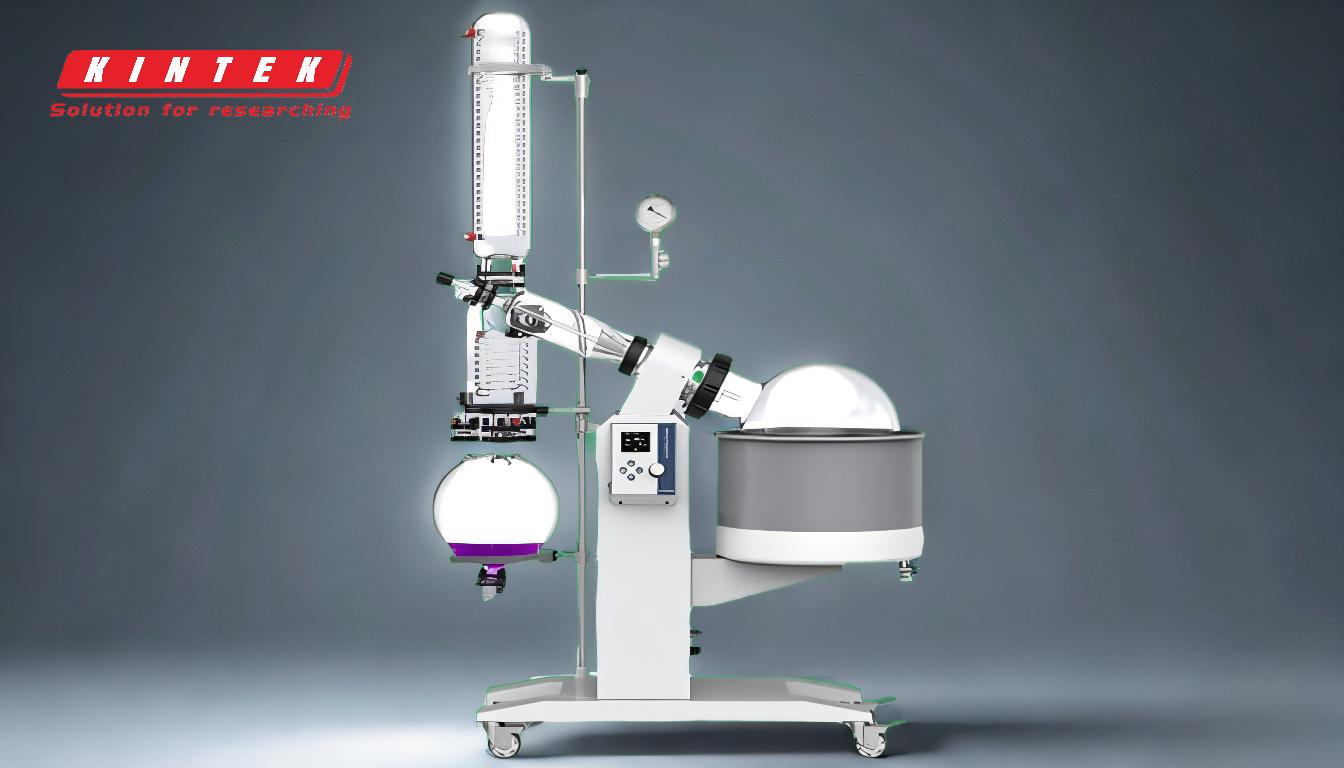Extraction and distillation are both critical processes in the cannabis industry, but they serve different purposes and offer distinct advantages. Extraction focuses on isolating oils and desired compounds from plant material, while distillation refines these extracts by separating compounds based on boiling points. Extraction is often preferred for its ability to preserve a broader spectrum of compounds, including heat-sensitive cannabinoids and terpenes, which can be degraded during distillation. Additionally, extraction methods like those using a rotavapor offer efficiency, scalability, and environmental benefits, such as solvent recovery and precise temperature control. These advantages make extraction a more versatile and cost-effective process for producing high-quality cannabis extracts.
Key Points Explained:

-
Preservation of Heat-Sensitive Compounds:
- Extraction methods, such as solvent-based or CO2 extraction, operate at lower temperatures compared to distillation, which relies on boiling points to separate compounds. This is crucial for preserving heat-sensitive cannabinoids (e.g., THC, CBD) and terpenes, which can degrade or evaporate at higher temperatures.
- Distillation, while effective for isolating specific compounds, may inadvertently destroy or alter these delicate molecules, reducing the overall quality and therapeutic value of the final product.
-
Broader Spectrum of Compounds:
- Extraction captures a wider range of compounds from the plant material, including cannabinoids, terpenes, flavonoids, and other phytochemicals. This results in a "full-spectrum" or "broad-spectrum" extract, which is believed to offer enhanced therapeutic effects due to the entourage effect (the synergistic interaction of these compounds).
- Distillation, by contrast, isolates specific compounds, often resulting in a narrower profile that may lack the complexity and benefits of a full-spectrum extract.
-
Efficiency and Scalability:
- Extraction methods, particularly those using advanced equipment like rotavapors, are highly efficient. Rotavapors allow for continuous extraction, faster processing times, and the ability to reuse solvents, reducing costs and waste.
- These methods are also easier to scale up for industrial production, making them ideal for large-scale cannabis processing.
-
Temperature Control:
- Extraction processes, especially those involving rotavapors, offer precise temperature control. This ensures that the extraction occurs under optimal conditions, minimizing the risk of degrading sensitive compounds.
- Distillation, on the other hand, requires higher temperatures to vaporize and separate compounds, which can be less forgiving for heat-sensitive materials.
-
Solvent Recovery and Environmental Impact:
- Extraction methods like rotavapor extraction allow for the recovery and reuse of solvents, significantly reducing both operational costs and environmental impact. This is particularly important in industries where sustainability is a growing concern.
- Distillation does not typically involve solvent recovery, making it less environmentally friendly in comparison.
-
Purity and Filtration:
- Extraction methods, such as those using rotavapors, produce purer extracts by completely separating desired compounds from solid plant material. This eliminates the need for additional filtration steps, which are often required in methods like maceration.
- Distillation focuses on purifying already extracted oils, but it may not address impurities introduced during the initial extraction process.
-
Versatility in Product Development:
- Extraction allows for the creation of a wide variety of cannabis products, including oils, tinctures, edibles, and topicals, with diverse cannabinoid and terpene profiles.
- Distillation is more limited in scope, primarily used to produce highly purified isolates or distillates for specific applications, such as vape cartridges or pharmaceutical formulations.
In summary, extraction offers significant advantages over distillation in terms of preserving heat-sensitive compounds, maintaining a broader spectrum of phytochemicals, and providing greater efficiency, scalability, and environmental sustainability. These benefits make extraction the preferred method for producing high-quality, versatile cannabis extracts.
Summary Table:
| Aspect | Extraction | Distillation |
|---|---|---|
| Heat-Sensitive Compounds | Preserves cannabinoids and terpenes with lower temperatures. | Risks degrading or altering heat-sensitive compounds. |
| Spectrum of Compounds | Captures full-spectrum or broad-spectrum compounds for enhanced effects. | Isolates specific compounds, resulting in a narrower profile. |
| Efficiency & Scalability | Highly efficient, scalable, and cost-effective with advanced equipment. | Less efficient and harder to scale for large-scale production. |
| Temperature Control | Precise control minimizes degradation of sensitive compounds. | Requires higher temperatures, risking damage to heat-sensitive materials. |
| Environmental Impact | Solvent recovery reduces waste and environmental impact. | Lacks solvent recovery, making it less eco-friendly. |
| Purity & Filtration | Produces purer extracts without additional filtration steps. | Focuses on purifying oils but may not address impurities from extraction. |
| Product Versatility | Enables diverse product development with varied cannabinoid profiles. | Limited to producing highly purified isolates for specific applications. |
Ready to optimize your cannabis processing? Contact us today to learn more about extraction solutions!










